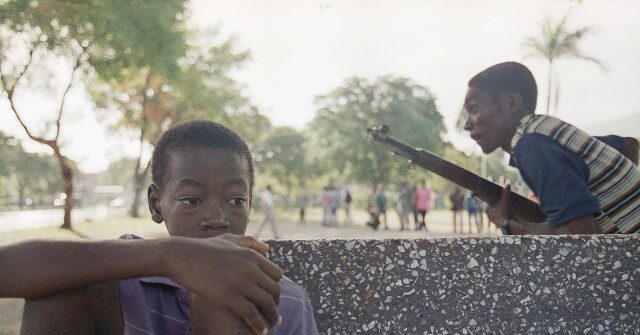Human Rights Watch (HRW) has drawn attention to a disturbing trend in Haiti, where criminal gangs are increasingly recruiting young boys as child soldiers and compelling young girls into lives of sexual exploitation and servitude. This alarming report reveals that thousands of children, propelled by overwhelming hunger and poverty, are becoming entangled with gangs that engage in various illegal activities. HRW emphasizes that children’s dire circumstances are exploited, forcing them to join these gangs, often under conditions of abuse and violence. This situation has escalated sharply amidst heightened international efforts to support the Haitian National Police (HNP) and combat the dominance of criminal organizations.
The proliferation of gang recruitment of children is in direct response to the United Nations Multinational Security Support (MSS) and the notable increase in assistance for the HNP. With gangs exerting control over approximately 80 percent of Port-au-Prince, they possess a vast pool of children vulnerable to exploitation and abuse. While precise statistics are difficult to ascertain, estimates suggest that around 30 percent of gang members are children, some of whom are engaged in activities that include extortion, looting, killings, and kidnappings. UNICEF has raised concerns about the alarming statistics, indicating that in certain gangs, as many as half the members could be minors, primarily serving as lookouts and combatants in confrontations with law enforcement.
The testimonies gathered by HRW from children involved with these criminal factions highlight the desperate motivations that drive them into gangs. Many boys reported that hunger and the need for food were crucial factors in their decision to join these groups, which they view as potential lifelines for survival. Girls, conversely, describe a terrifying reality where they are targeted for sexual abuse; gang leaders and members rape them at will, emphasizing a culture of violence and domination that objectifies these young girls. Eyewitness accounts have revealed the harrowing conditions faced by these girls, who are forced into servitude performing domestic chores and subjected to brutal sexual violations, often discarded when they become pregnant.
The threats that child soldiers face extend beyond sexual violence; they are frequently met with intimidation and dire consequences for disobedience. Reports from UN officials corroborate these claims, documenting numerous instances of summary executions and lynchings involving children, particularly since early 2024. Moreover, these young conscripts are thrown into violent confrontations against competing gangs, police forces, and newly formed vigilante groups that emerge in response to escalating violence in Port-au-Prince. The perilous nature of their involvement—and the life-threatening battles they may face—further underscores the urgent need for intervention and support for these children.
Publicly, criminal organizations show little shame in their recruitment tactics, with gang leaders openly glorifying their child soldiers through music and media. One particular gang figure has gained notoriety for producing rap videos that celebrate the youth fighting for him, boasting of a dedicated unit that trains these minors in the use of military-grade weaponry. This stark reality is a grim indicator of a broader societal collapse wherein violence and exploitation have become normalized within the culture. HRW’s findings expose not only the harm inflicted on individual children but also the systematic erosion of social order in Haiti.
In light of these grave developments, HRW has urged the transitional government to prioritize the welfare of children affected by this crisis. The organization recommends a multi-faceted approach to improve children’s lives by ensuring their protection and providing access to essential resources such as healthcare, education, and legal support tailored to facilitate their rehabilitation and reintegration into society. Such initiatives are essential not only for protecting these vulnerable individuals but also for restoring a sense of normalcy and safety within Haitian communities plagued by gang violence and lawlessness. Ending this cycle of recruitment and abuse demands urgent action that prioritizes the well-being of children at risk and thus lays the groundwork for building a safer and more equitable future.

